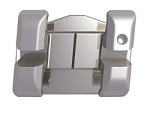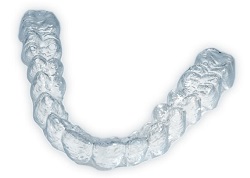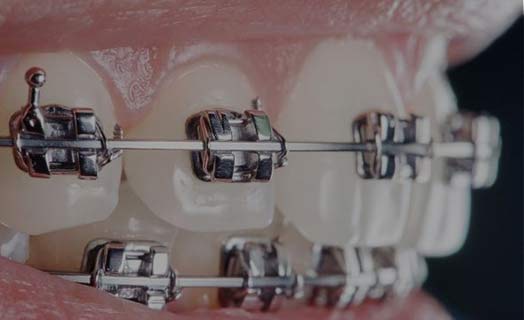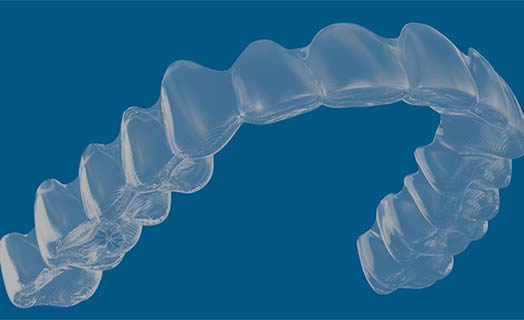Orthodontics Treatment Options
 Orthodontics Overview
Orthodontics Overview
Straight teeth and a correct bite reduce the risk of future dental issues and help you to smile more confidently. With straight teeth, you can better prevent plaque buildup, which reduces your risk of gum disease. You’ll also be able to chew food properly and speak better.
Dental Associates offers various orthodontic treatment options, including traditional metal braces, clear ceramic braces, Invisalign® clear aligners, lingual braces, removable appliances, or even partial treatments. We’ll help you to decide which orthodontic treatment is best for you based on the severity of your bite, the degree of dental misalignment, and your hopes regarding treatment times and the final results.
Whatever orthodontic treatment we determine is best for your individual case, your braces will straighten your teeth, help you bite and chew correctly, improve your appearance, advance your oral health, and boost your confidence!
Braces for a Misaligned Bite
Braces correct a bad bite, also called malocclusion. Types of misaligned bites can be a crossbite, overjet, open bites and other bite issues. Bad bites and crooked teeth are often interrelated, and braces can fix both simultaneously.
Even if your teeth appear straight, it’s possible that your jaws may not be properly aligned. In this case, an orthodontist may recommend treatment to prevent future problems such as premature tooth loss, extra wear to tooth enamel, speech and chewing problems, and more severe jaw problems. Jaw or tooth alignment issues can be inherited or caused by an injury, losing baby teeth prematurely or too late, or by thumb sucking.
The kind of orthodontic treatment you’ll have depends on your treatment needs and what your orthodontist recommends. Below are some of the most common orthodontic treatment options.
 Traditional Metal Braces
Traditional Metal Braces
Traditional braces consist of standard metal brackets. This is the most common type of braces, and they have become much sleeker and more comfortable with advancements in technology. With metal braces, you also have the option of adding colored elastic bands to make your braces vibrant, colorful, and uniquely yours! Learn more about traditional braces and colorful braces bands.
Clear Braces
Not all braces brackets have to be metal. If you want your braces to be less noticeable, clear braces may be for you. Clear braces function in the same way as traditional metal braces, but the brackets are made with translucent materials. Learn more about clear braces.
Invisalign Clear Aligners
Invisalign clear aligners are a clear set of custom-fitted removable trays made with a pliable material that fits snuggly to your teeth. Each new set of Invisalign aligners applies a slight adjustment to your teeth. Since they’re removable, you can take them out while eating, drinking, brushing, and flossing so you can easily maintain good oral health habits. You can also remove them for special occasions. Learn more about Invisalign.
Partial Orthodontic Treatment
Not everyone needs a full set of braces. Depending on the case, sometimes just one, two, or a few teeth need to be realigned for aesthetic purposes or to prepare for other dental work such as dental implants, restorations, or periodontics. In these types of cases, an orthodontist may recommend partial orthodontic treatment, also called limited treatment. Because this treatment corrects a more isolated area of the mouth, it usually requires less treatment time and less hardware.
Two-Phase Orthodontic Treatment for Young Children
To create a healthy smile for a lifetime, a child’s teeth need to be straight and their jaws need to be aligned properly. It’s beneficial to have an orthodontist examine your child while they still have some of their baby teeth. By age seven, typically enough permanent teeth have emerged to evaluate relationships developing between the teeth, the jaw, and bite patterns for a pediatric dentist to make sure everything in the mouth will continue to develop as it should.
If a pediatric dentist or orthodontist determines that early treatment is necessary, it often occurs in two phases. The first phase will begin right away while baby teeth are still present, and the second phase will occur when your child gets older at the time deemed appropriate by their growth and development. At Dental Associates, you’ll experience the benefit of having your child’s orthodontist right down the hall from their pediatric dentist; your child will receive the most coordinated pediatric dentistry and orthodontic care, all in the same clinic.
Early treatment will help prevent larger oral issues later, and thus prevent more invasive orthodontic procedures when the child gets older. Early prevention and intervention makes orthodontic work as a teenager much more comfortable and successful.
Request an Orthodontist Consultation
If you’re ready to get started, then request a consultation with one of our caring orthodontists.




